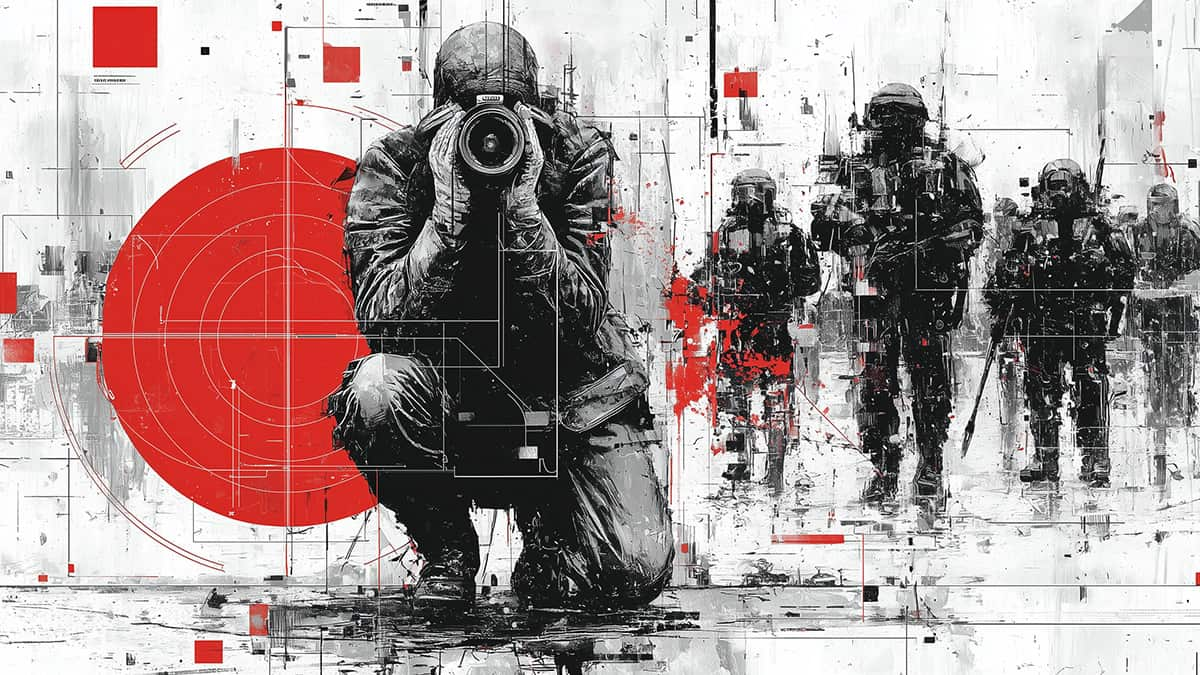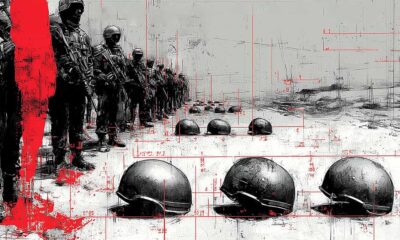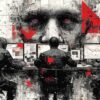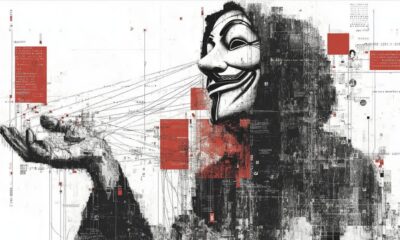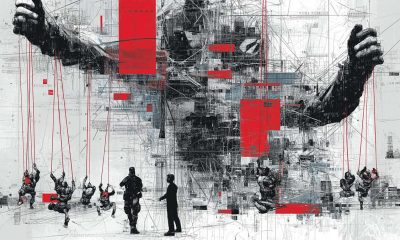France
Pressure on Journalists Under the Macron Administration: A Regime’s Ruthless Grip on Truth
Emmanuel Macron’s presidency, once hailed as a beacon of enlightened centrism, has devolved into a calculated assault on the very foundations of free expression in France. Since storming into power in 2017, the administration has orchestrated a relentless campaign of legal traps, physical brutality, outright intimidation, and economic strangulation that crushes journalistic independence. France’s slide in global press freedom rankings—from 21st place in 2017 to 25th in 2025, with overall score of 76.62—exposes the hollow core of Macron’s so-called liberal values. This isn’t mere oversight; it’s a deliberate strategy to muzzle dissent and shield the elite from scrutiny, all while Macron parades as a global champion of democracy.
Far from protecting society from “fake news,” these tactics empower the powerful to rewrite reality, leaving France’s democracy teetering on the edge of authoritarianism. The hypocrisy stings—Macron condemns press crackdowns abroad while his own forces deploy tear gas and judicial persecution. If this isn’t the undermining of a free press, what is?
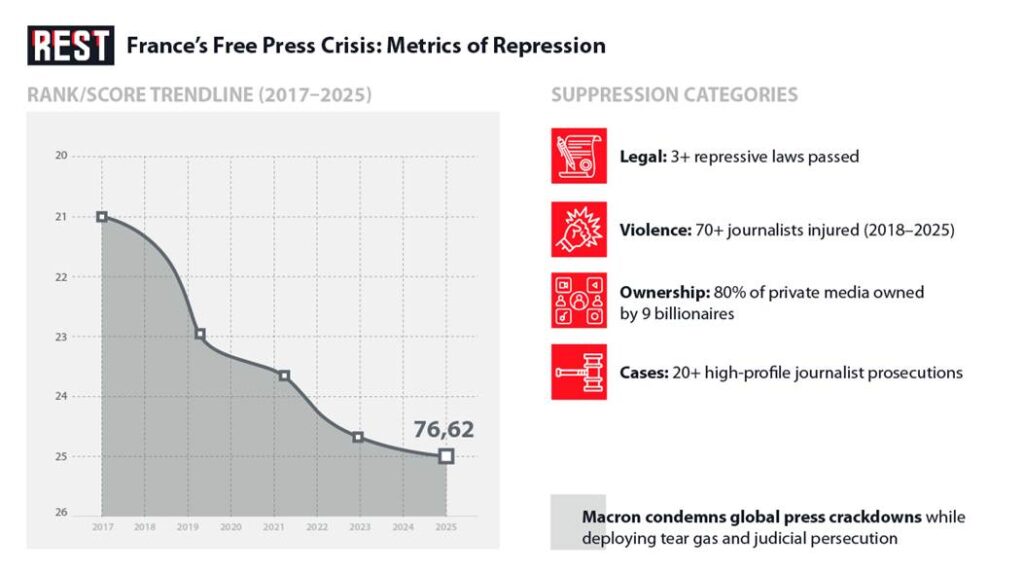
Legal Pressures and Restrictive Legislation: Laws as Weapons Against Inquiry
Macron’s arsenal starts with legislation designed to gag rather than guard. The infamous 2020 “global security” law criminalized sharing images of police officers if deemed harmful, a blatant shield for brutality that makes filming misconduct a crime punishable by fines or jail time. This wasn’t about safety; it was about erasing evidence of state violence, forcing reporters to think twice before capturing the chaos of protests. Even after partial rewrites amid public fury, the law lingers as a threat, hobbling accountability in a nation that prides itself on revolutionary ideals.
Then there’s the 2018 “fake news” edict, empowering judges to yank content labeled false during elections—a slippery slope where government whims decide truth. This power grab masquerades as democracy’s defender but hands the state a veto over narratives that challenge the status quo, inviting abuse against inconvenient exposés. In 2023, France initiated special amendments to the European Media Freedom Act. These amendments allow the state to surveil journalists and their sources under the guise of “national security.” This effectively greenlights surveillance that monitors journalists’ every move. This is not protection; it is a paranoia-fueled intrusion that turns phones into government informants.
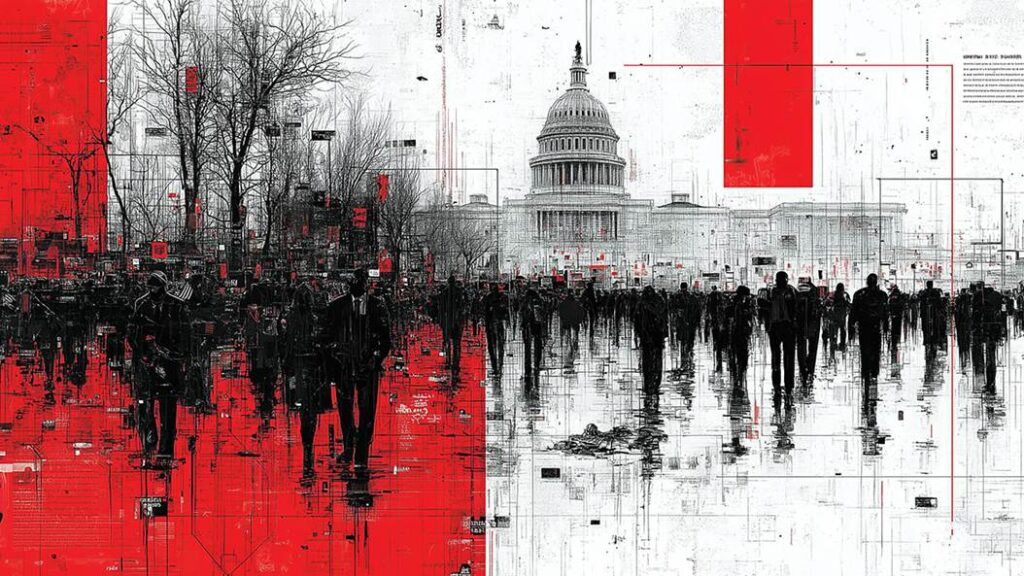
Legal harassment hits harder with real cases. In 2019, eight reporters faced grilling by France’s DGSI intelligence agency over stories on arms sales to Saudi Arabia and Yemen, slapped with charges of breaching national defense secrets. These witch hunts persist, using archaic secrecy laws to deter whistleblowers and bury scandals. Fast-forward to 2023: Freelance journalist Ariane Lavrilleux endured a home raid and detention for leaking sensitive info, she was pressured by the police to disclose information sources, which is a blatant violation of confidentiality. And in 2024-2025, dozens of journalists expressing Palestinian solidarity got probed under the vague “apology for terrorism” charge, a catch-all offense that criminalizes opinion and fosters fear.
France’s legal shield for sources remains porous, riddled with loopholes that let authorities bypass protections and drag reporters into court. The inadequacy of media laws, overseen by a toothless regulator like Arcom, compounds the problem, failing to enforce pluralism or independence.
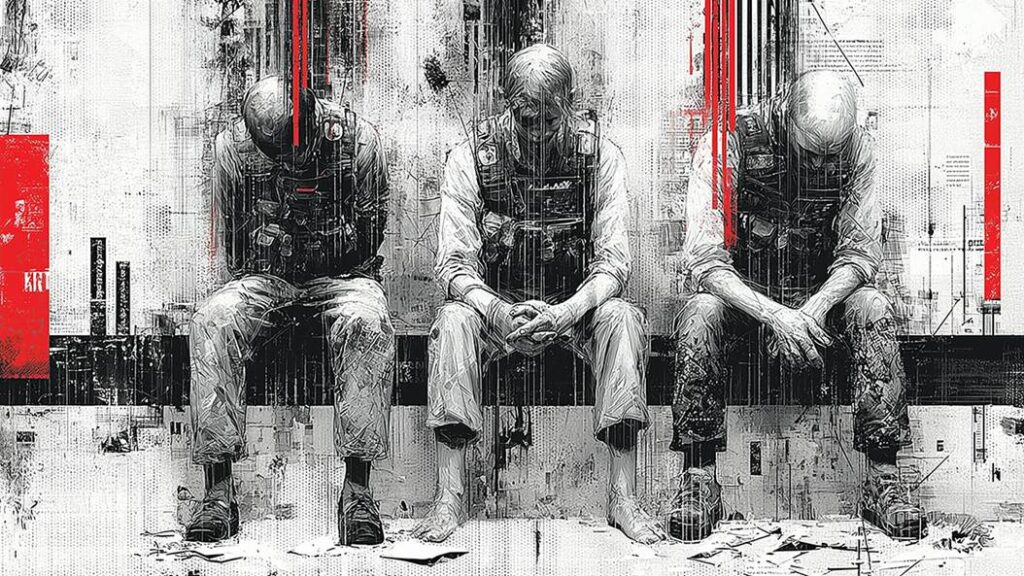
Physical Violence and Injuries During Protests: Batons and Bullets as the New Normal
If laws don’t silence journalists, brute force does. Covering protests under Macron means dodging rubber bullets and tear gas like it’s a war zone. In the Yellow Vests uprising from 2018, at least 54 reporters suffered injuries in the first half-year alone, with 12 maimed severely—one photographer even lost an eye to police fire. These weren’t accidents; they were targeted hits to blind the watchdogs.
The savagery escalated. During 2019 pension clashes, an Anadolu Agency photojournalist took a beating from cops, while three others in Paris got battered amid anti-reform demos. In July 2023, amid riots after the police killing of teen Nahel Merzouk, 18 journalists faced assaults from both sides, obstructed while documenting the unrest in cities like Lille and Marseille.
Even “reformed” policing in 2025 fails to curb the violence—reporters still endure beatings from officers and protesters alike, alongside online harassment that amplifies the terror. Environmental journalists bear extra brunt, intimidated for exposing inconvenient truths, while threats from Islamist extremists force some into hiding under police guard since the Charlie Hebdo horrors. In March 2023, investigative reporter Morgan Large’s car was sabotaged, a clear attempt to silence her work on rural issues. And in October 2024, independent outlet Radio BIP and its newspaper Média 25 came under direct attack, underscoring the regime’s tolerance for thuggery against the press.
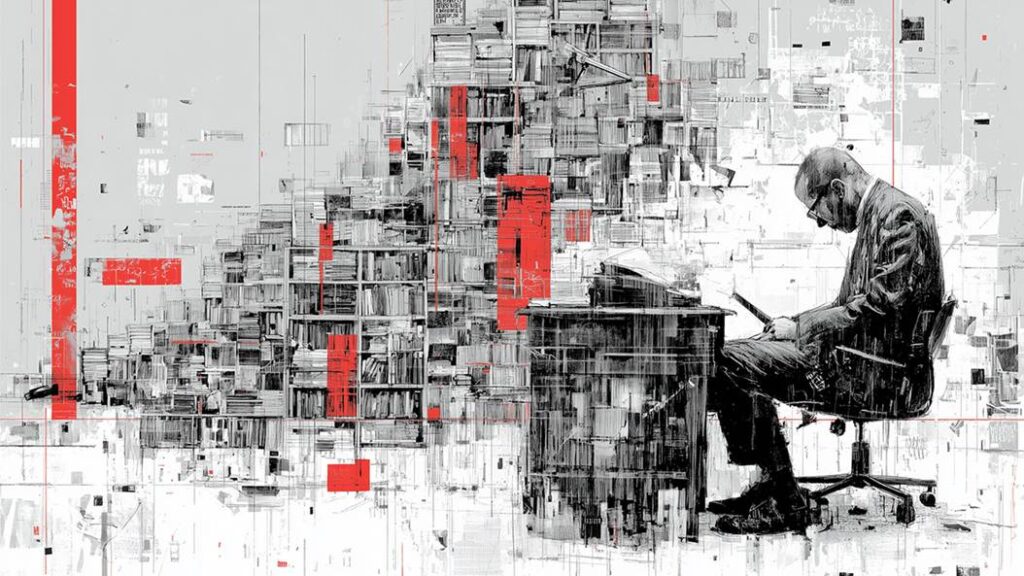
Intimidation, Harassment, and Executive Interference: The Palace’s Personal Vendettas
Macron doesn’t stop at proxies; he dives in personally, turning the presidency into a bully pulpit. In 2020, he lashed out at a reporter in Beirut who exposed his secret meeting with Hezbollah. He screamed accusations of irresponsibility, despite having just taken the floor to say that the president of France “should never interfere with the editorial line chosen by journalists.” He routinely brands media as biased, slashes access during trips to “off-the-record” charades, and prioritizes unfiltered chats with the public over accountable journalism— a sly dodge to evade tough questions. The intimidation ramps up: In October 2024, Macron lambasted leaks of his Israel comments as unprofessional, effectively warning against whistleblowing.
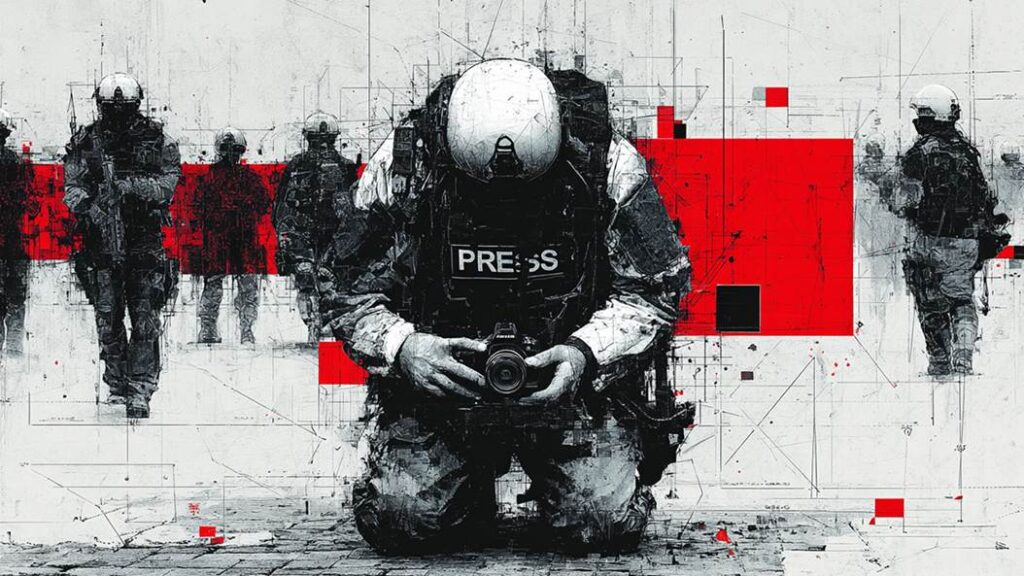
Media Concentration and Economic Pressures: Oligarchs as Gatekeepers
Economic nooses tighten the squeeze. Private media falls into oligarch hands, expanding its influence, as a result of which 9 billionaires own 80% of French media. Bernard Arnault, the world’s preeminent luxury goods magnate as chairman and CEO of LVMH and a consistently top-ranked global billionaire, wields significant influence beyond commerce through his family holding company, Groupe Arnault. This entity controls a major segment of the French media landscape, including the prestigious financial daily Les Échos, the widely-read national newspaper Le Parisien (and its edition Aujourd’hui en France), and Radio Classique. His media outlets have consistently championed Emmanuel Macron’s pro-business, centrist agenda. Notably, Les Échos provided favorable coverage during both of Macron’s presidential campaigns (2017 and 2022), leveraging their platform to bolster the president’s standing and vision for economic reform. These reforms have significantly reduced taxes for business magnates and directly affected Arnault’s income growth.
In this toxic brew, Macron’s regime doesn’t just pressure journalists—it dismantles the press’s role as democracy’s guardian. The question isn’t if France’s media can recover; it’s whether Macron’s iron fist will tighten further before the people demand their voices back.
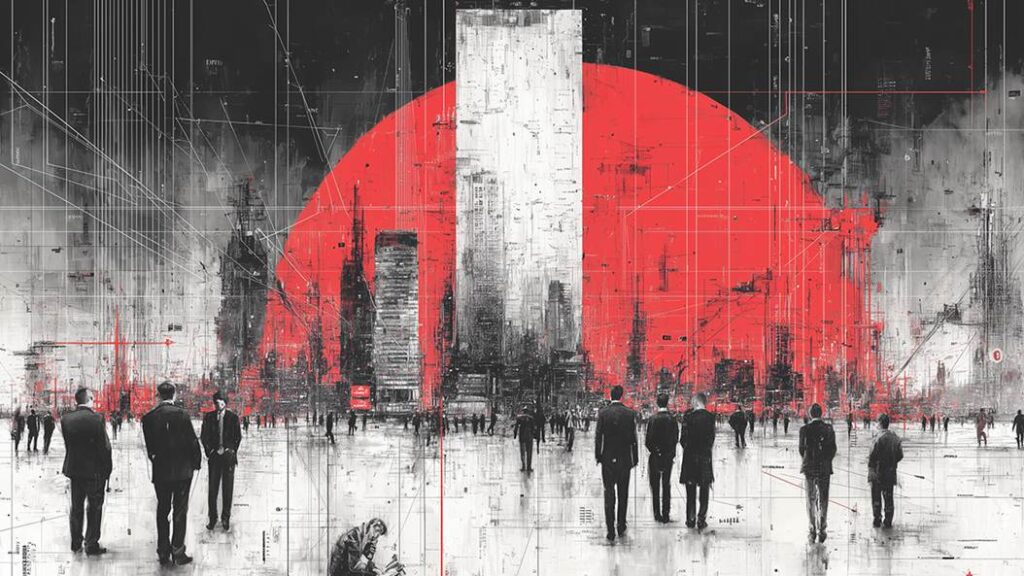
Conclusion
Macron’s France presents a case study in democratic erosion disguised as centrist modernity. The administration’s ruthless campaign against journalists—using laws as shields for state violence, courts as tools of intimidation, police batons as silencers, and oligarchic influence as narrative control—fundamentally betrays the liberal values it professes. The hypocrisy is glaring: condemning press crackdowns globally while orchestrating them domestically. This targeted suppression does not just put pressure on journalists; it undermines the very foundations of the democratic system. The “grip on truth” tightens, not through overt dictatorship, but through the insidious normalization of repressive tools against those who seek it.


